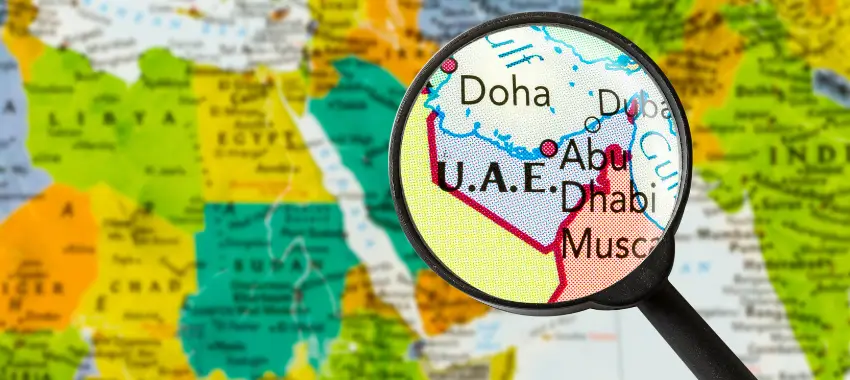Unlocking Business Excellence with ISO Certification in UAE
In today’s highly competitive and quality-conscious global market, businesses must demonstrate commitment to international standards. One of the most effective ways to do this is through ISO certification. The ISO Certification in UAE is not just a symbol of quality—it is a strategic business decision that enhances credibility, streamlines processes, and opens the door to international markets. As the UAE continues to establish itself as a global business hub, more organizations are seeking ISO certifications to stay ahead of the curve.
What is ISO Certification?
ISO, or the International Organization for Standardization, develops and publishes international standards to ensure the quality, safety, and efficiency of products, services, and systems. ISO certification is the formal approval that a company’s management systems comply with these standards.
There are several types of ISO standards relevant to various industries. Common certifications include ISO 9001 for Quality Management, ISO 14001 for Environmental Management, ISO 45001 for Occupational Health and Safety, ISO 27001 for Information Security, and ISO 22000 for Food Safety Management. In the UAE, businesses across sectors—from construction to healthcare and IT—leverage these certifications to reinforce trust and gain competitive advantage.
Why ISO Certification Matters in the UAE
The UAE's diversified economy and strategic position as a global trade and business center make ISO certification particularly valuable. With the government’s vision to promote innovation, sustainability, and quality in both public and private sectors, ISO certification aligns well with national development goals.
Businesses that achieve ISO Certification in UAE benefit from greater operational efficiency, reduced risks, and enhanced customer satisfaction. Moreover, ISO standards are often required when bidding for government contracts or dealing with international partners, making certification a practical necessity rather than an optional quality stamp.
Benefits of ISO Certification in UAE
Achieving ISO certification offers a wide range of benefits for organizations in the UAE:
Enhanced Reputation and Market Access ISO certification sends a strong message to clients and stakeholders about a company’s commitment to quality and excellence. In a market as competitive as the UAE, this can be a decisive factor in gaining trust and securing deals.
Improved Internal Processes
Implementing ISO standards requires businesses to examine and optimize their internal operations. This leads to streamlined workflows, better resource management, and consistent outcomes—crucial for long-term success.
Regulatory Compliance
ISO standards help ensure compliance with UAE federal and local regulations. For industries like healthcare, construction, and food services, where regulatory scrutiny is high, certification can serve as a robust framework for meeting legal obligations.
Boost in Employee Morale and Engagement By involving employees in process improvements and clearly defining roles and responsibilities, ISO certification contributes to a more productive and engaged workforce.
Risk Management
Standards such as ISO 27001 and ISO 45001 help organizations in identifying potential risks and establishing effective control measures, which is critical in safeguarding assets and ensuring workplace safety.
The Certification Process in the UAE
Obtaining ISO Certification in UAE typically involves several key stages. Companies must first choose the relevant standard(s) for their industry and needs. This is followed by a gap analysis to compare current practices against ISO requirements. Based on this, necessary changes and improvements are made.
Once the systems are in place, an accredited certification body conducts an audit to verify compliance. If successful, the organization is awarded the ISO certificate, which remains valid for three years and requires regular surveillance audits.
The UAE has a number of well-established certification bodies and consultants who offer guidance and support throughout the process. Engaging experienced professionals ensures a smoother journey toward certification and helps maintain long-term compliance.
Industries Leading the Way in ISO Certification in UAE
Many sectors in the UAE are rapidly adopting ISO standards as part of their growth and quality strategies. Construction companies are obtaining ISO 45001 and ISO 9001 certifications to enhance safety and workmanship. Information technology firms are prioritizing ISO 27001 to safeguard digital assets, while logistics companies are embracing ISO 14001 to reduce their environmental impact.
In healthcare, ISO 13485 certification for medical devices is gaining traction, and ISO 22000 is being widely adopted in the food and hospitality sectors to guarantee food safety and hygiene.
Choosing the Right Certification Partner
For businesses new to ISO certification, selecting the right certification body is crucial. Look for an accredited, reputable partner with experience in your specific industry. Many certification agencies in the UAE offer tailored solutions, combining consulting, training, and auditing services under one umbrella.
Transparency, affordability, and post-certification support should also be part of the selection criteria to ensure sustained compliance and maximum return on investment.
Future Outlook of ISO Certification in UAE
As the UAE continues to drive economic diversification and sustainable development, ISO certification will remain a vital instrument for business excellence. With Expo 2020’s legacy still influencing innovation and quality practices, more businesses are aligning themselves with international benchmarks.
ISO Certification in UAE is expected to grow in relevance as sectors such as fintech, renewable energy, AI, and logistics expand. Organizations that proactively invest in ISO certification will be better positioned to meet market demands, foster trust, and drive long-term value.
Conclusion
ISO Certification in UAE is more than just a quality standard—it is a strategic enabler for growth, compliance, and international competitiveness. As the UAE solidifies its status as a global business destination, organizations must harness the power of ISO standards to stand out, innovate, and thrive in a fast-changing world. By committing to international best practices, businesses in the UAE are not just raising the bar—they are setting new benchmarks for excellence.
